KS1 TO KS2
Our tutors love to use visual ways, and various interesting examples to teach your child. Our virtual whiteboards are used expertly by our tutors to prepare lessons that are well structured, easy to understand, and easy to work on! Yes, we often get your child involved and writing on our virtual whiteboards!
All our tutors are also DBS checked.
Our tutors often work with their students throughout their academic careers.
——————————————————————–
We offer group key stage online tuition sessions for children aged 4-11 in KS1 and KS2. Key Stage Tuition is tailored to suit your very specific learning requirements. We follow and complement the National Curriculum levels and create truly individual tuition plans designed to delivering effective KS2 SATs preparation.
Key stage 1 – years 1 and 2
The principal focus of mathematics teaching in key stage 1 is to ensure that pupils develop confidence and mental fluency with whole numbers, counting and place value. This should involve working with numerals, words and the four operations, including with practical resources [for example, concrete objects and measuring tools].
At this stage, pupils should develop their ability to recognise, describe, draw, compare and sort different shapes and use the related vocabulary. Teaching should also involve using a range of measures to describe and compare different quantities such as length, mass, capacity/volume, time and money.
By the end of year 2, pupils should know the number bonds to 20 and be precise in using and understanding place value. An emphasis on practice at this early stage will aid fluency.
Lower Key Stage 2
The principal focus of mathematics teaching in lower key stage 2 is to ensure that pupils become increasingly fluent with whole numbers and the four operations, including number facts and the concept of place value. This should ensure that pupils develop efficient written and mental methods and perform calculations accurately with increasingly large whole numbers.
At this stage, pupils should develop their ability to solve a range of problems, including with simple fractions and decimal place value. Teaching should also ensure that pupils draw with increasing accuracy and develop mathematical reasoning so they can analyse shapes and their properties, and confidently describe the relationships between them. It should ensure that they can use measuring instruments with accuracy and make connections between measure and number.
By the end of year 4, pupils should have memorised their multiplication tables up to and including the 12 multiplication table and show precision and fluency in their work.
Pupils should read and spell mathematical vocabulary correctly and confidently, using their growing word reading knowledge and their knowledge of spelling
Upper Key Stage 2
The principal focus of mathematics teaching in upper key stage 2 is to ensure that pupils extend their understanding of the number system and place value to include larger integers. This should develop the connections that pupils make between multiplication and division with fractions, decimals, percentages and ratio.
At this stage, pupils should develop their ability to solve a wider range of problems, including increasingly complex properties of numbers and arithmetic, and problems demanding efficient written and mental methods of calculation. With this foundation in arithmetic, pupils are introduced to the language of algebra as a means for solving a variety of problems. Teaching in geometry and measures should consolidate and extend knowledge developed in number. Teaching should also ensure that pupils classify shapes with increasingly complex geometric properties and that they learn the vocabulary they need to describe them.
By the end of year 6, pupils should be fluent in written methods for all four operations, including long multiplication and division, and in working with fractions, decimals and percentages.
Pupils should read, spell and pronounce mathematical vocabulary correctly
THE MANY BENEFITS OF LEARNING ONLINE WITH SimplifyMATHS…
Our service is available to anybody, anywhere in the UK.
Whether you are in the early stages of revising for these exams or you need a crash course as you approach the exam itself, we can help you by constructing a course to fit in with your schedule. Short or long term courses, daily, weekly or monthly. The choice is yours.
Learning with SimplifyMaths online means that you can spend more time at home studying or just enjoying family life. We will fit in around your timetable to ensure that your course is more convenient, flexible and affordable for you.
We combine live video tutoring with a shared whiteboard, so we can talk through any problems you may have. Tutorials can be recorded so that you can play them back later as a refresher.

